Executive Summary
Gaps in our care infrastructure make it difficult for many workers to juggle the needs to earn a living and to provide care for family members. Similarly, people needing time off work to recover from an illness or injury, as well as those needing long-term services and supports (LTSS) to cope with a disability (either lifelong or in old age), often find that today’s patchwork of programs falls short.
Our early child care and education (ECCE) and LTSS systems are fragmented and means-tested, limited to serving only a fraction of even poor and low-income Americans. The broad middle class has inadequate care options and support. Paid family and medical leave (PFML)—which makes it possible for workers to care for a family member, bond with a new child, or recover from a medical condition without significantly compromising the family finances—is available in only a handful of states. Providers of ECCE and LTSS are poorly compensated, which limits the size and skills of the care workforce and affects the quality and reliability of care. Against this background, an integrated, holistic approach to family care needs over the lifespan merits consideration; such an approach also could address the needs of care workers, who are disproportionately women and people of color and face their own family care challenges.
Universal Family Care (UFC) is a policy designed to strengthen our care infrastructure to meet families’ changing care needs over time. It would make an affordable, integrated care system available to all. Everyone would both contribute to and benefit from a single “care insurance fund.” National programs including Social Security and state programs such as PFML have successfully used this social insurance model. In this report, we focus on state-level policy options, although such an approach could be adopted at the federal level as well.
The UFC insurance fund would cover ECCE, PFML, and LTSS needs when they arise, and provide benefits to families through a single access point. In crafting a UFC program, states will need to make design choices on a variety of issues including the level of comprehensiveness regarding who is covered and for what, the sources of funding, eligibility requirements, benefit adequacy, and qualifying events. To understand tradeoffs in design choices, we present four illustrative UFC designs, each expressed as packages of ECCE, PFML, and LTSS benefits. The choices vary primarily by their benefit generosity and by whether the program is funded solely by contributions or also by additional revenues to achieve universal coverage. Once a state has decided upon a structural design approach, choices remain concerning the degree of internal UFC integration across its ECCE, PFML, and LTSS components, as well as the relationship of UFC benefits to existing ECCE programs and Medicaid LTSS.
As states weigh how to help families cope with managing work and family, encourage greater labor force participation, improve the quality of jobs in the rapidly expanding care sector, and assist families with care costs, UFC holds the potential to address these challenges in a holistic way.
Robert Espinoza
Indivar-Dutta Gupta
Benjamin W. Veghte
William Arnone
INFOGRAPHICS
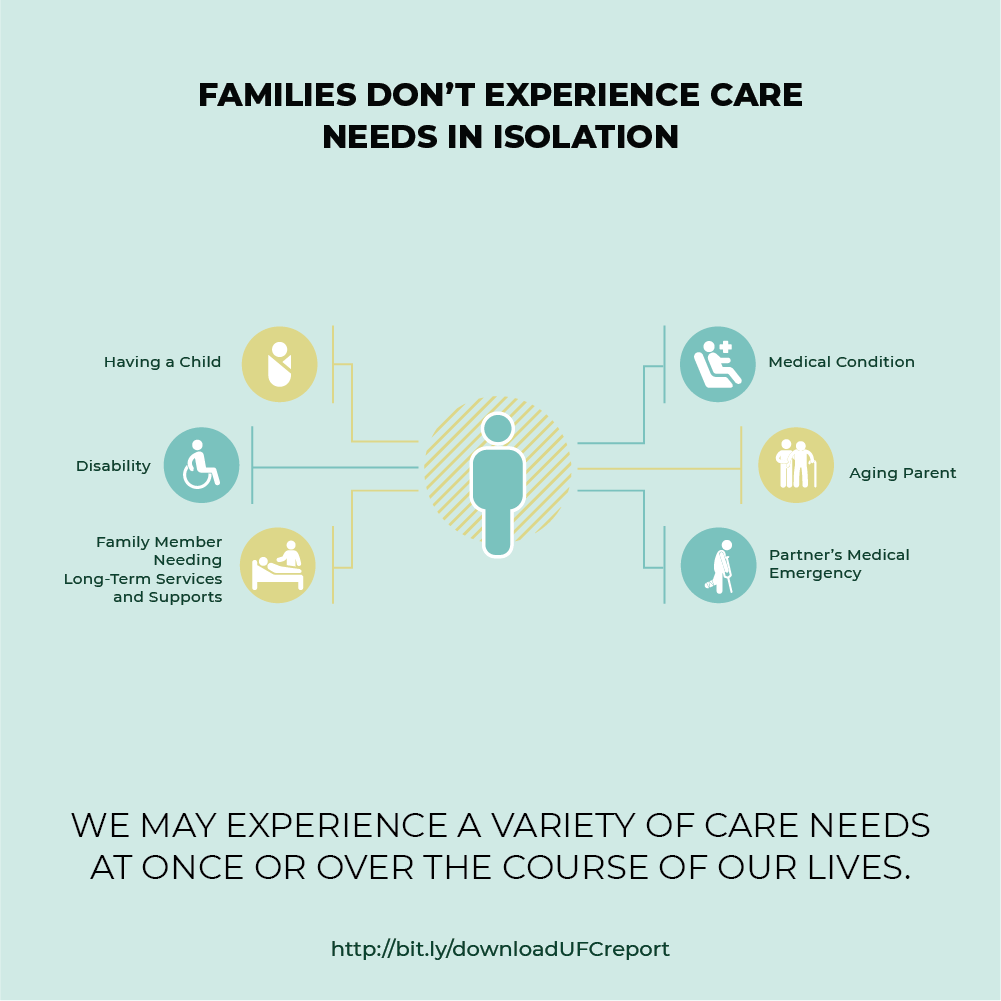
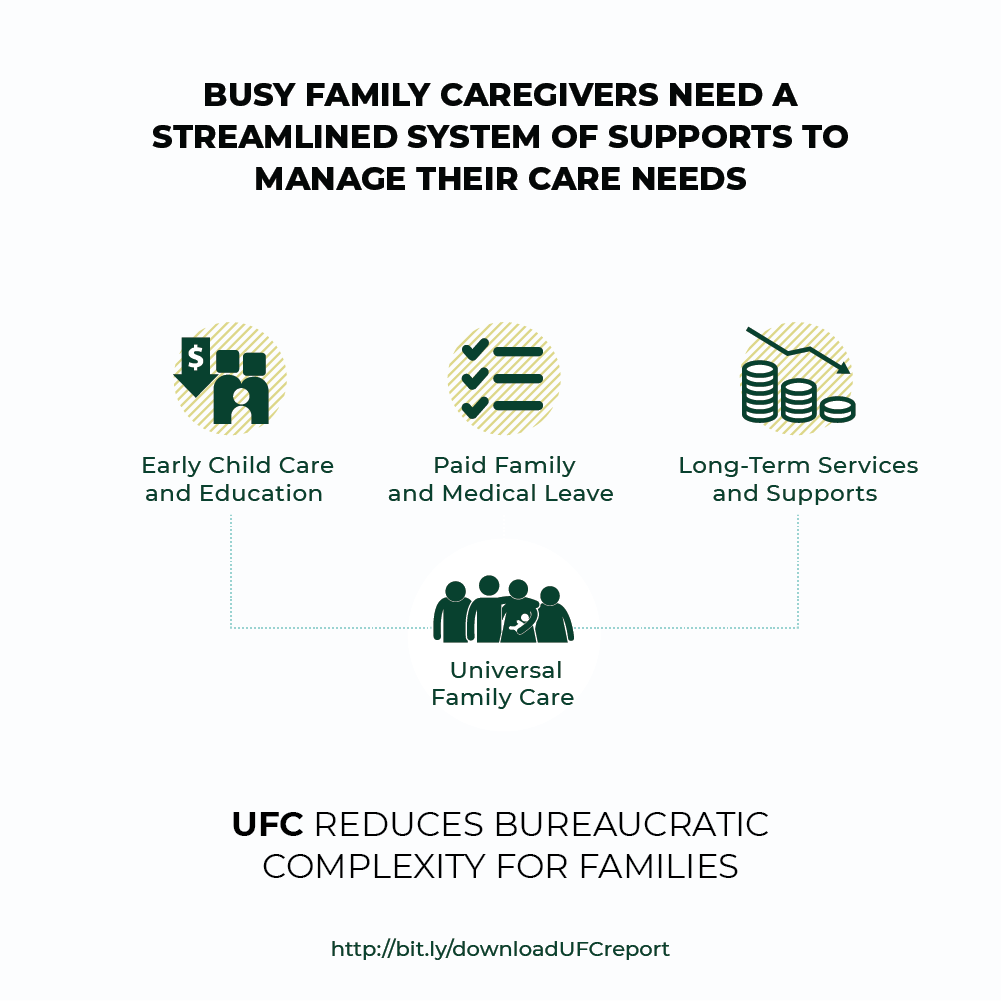
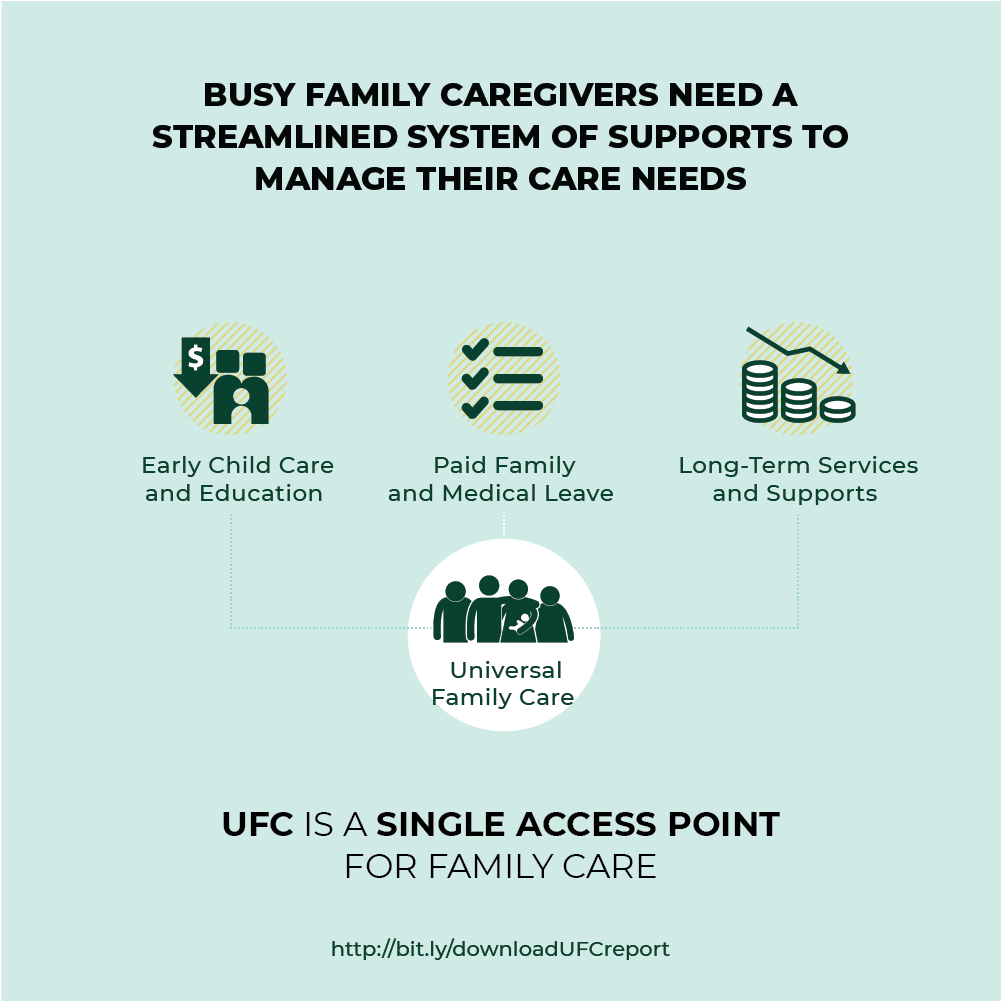
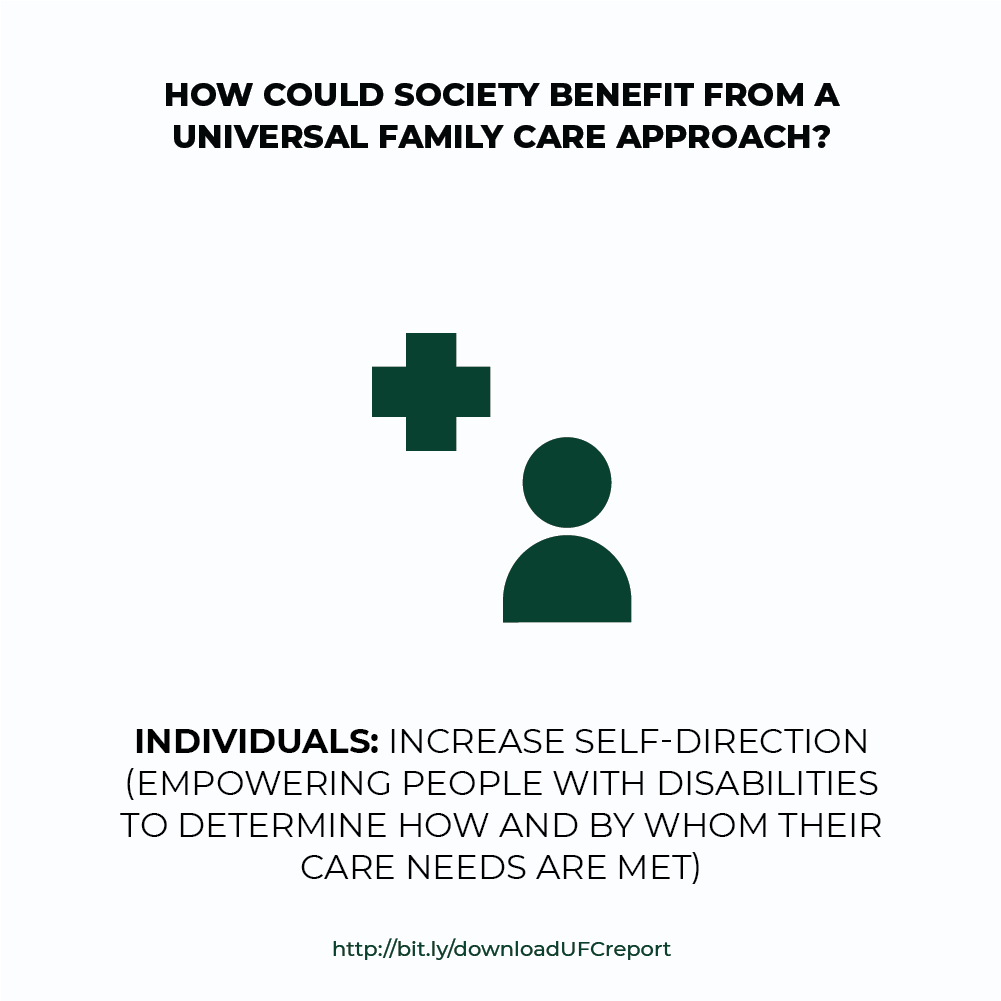
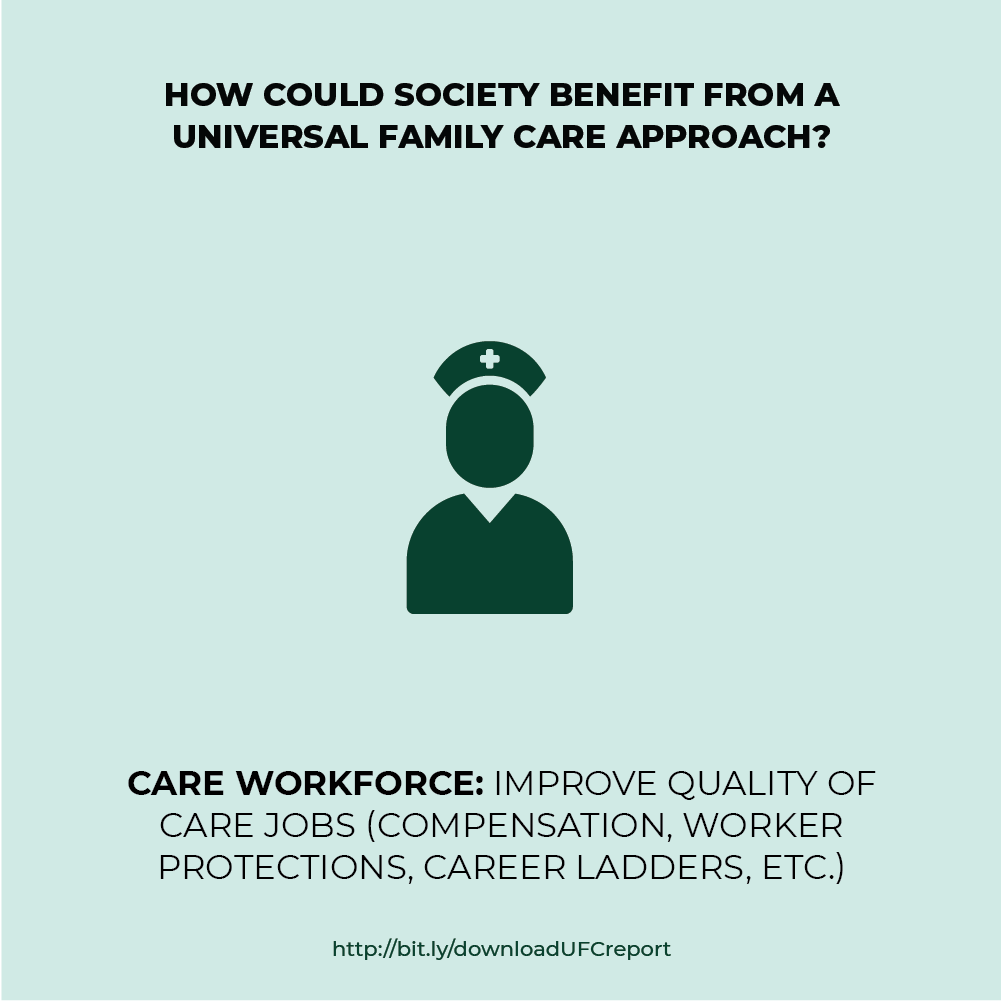
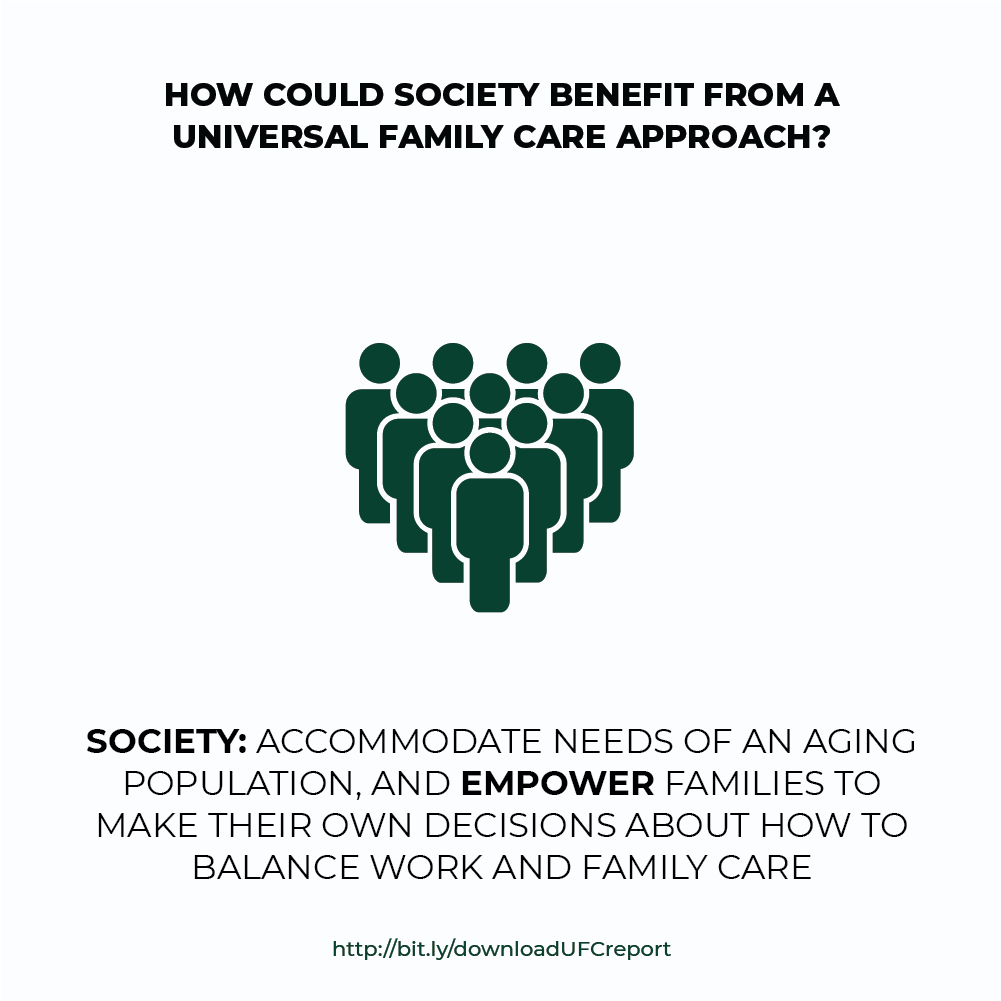
CHAPTER 4 INFOGRAPHIC DOWNLOADS (PDFS)
Universal Family Care (UFC) is One Integrated System
of Family Care Supports
Universal Family Care Is a Holistic, Integrated Approach
to Care Policy
Designing a State-Based Universal Family Care Program:
Four Illustrative Approaches
Want to learn more? Email us at:
info@caringacross.org
